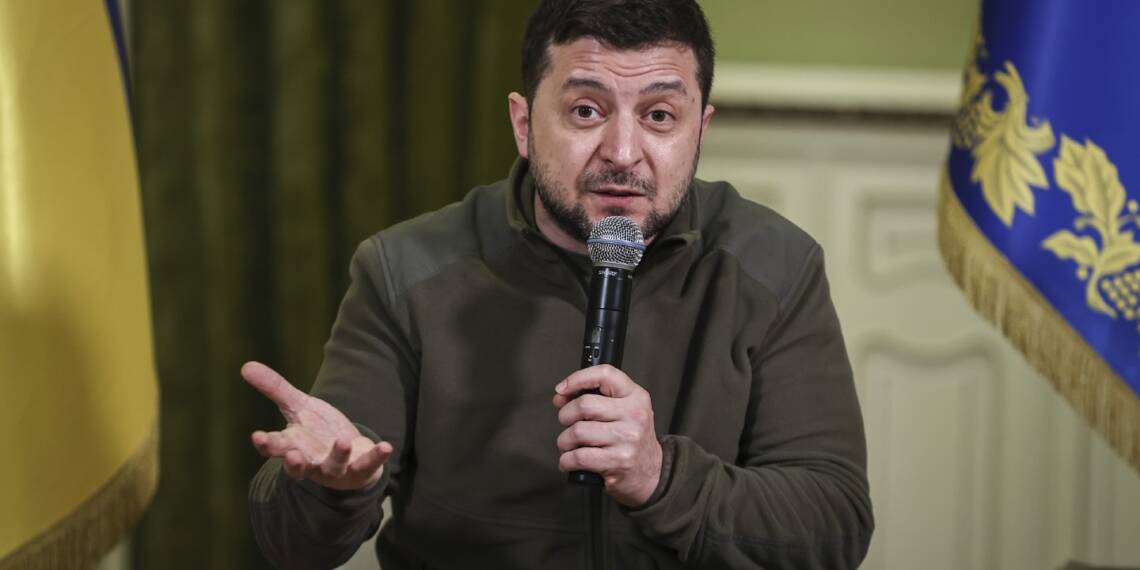The current political and military situation in Ukraine is increasingly precarious, reflecting heightened challenges for President Volodymyr Zelensky’s administration. Since Russia’s partial withdrawal from Kyiv in 2022—framed as a gesture of goodwill during peace negotiations—the stability of Zelensky’s regime has been notably uncertain. The integrity of the front lines and the continuation of external support are critical. Without these, Zelensky’s governance could potentially falter by the end of the year.
In a recent dialogue with German media, President Zelensky highlighted Ukraine’s intentions to initiate a new counteroffensive against Russian forces. This move underscores the necessity for increased domestic military capabilities, which Ukraine seeks to bolster through production licenses from international allies. Furthermore, Zelensky has appealed to the United States to resolve its Congressional impasse concerning aid to Ukraine, emphasizing the urgency of preparation for the upcoming military campaign. Despite these declarations, reports suggest that no such counteroffensive is planned due to a significant deficit in manpower and armaments.
The disparity in military capacity between Ukraine and Russia has only expanded following the unsuccessful counteroffensive last summer. Russia’s superior logistical capabilities have become apparent, leading to a shift in perspective within the Western alliance over the past nine months. This realization has reignited interest among some Western nations in stabilizing the conflict, though comprehensive peace talks have not resumed, as there remains a faction that supports the continuation of the NATO-Russian proxy conflict.
This ongoing war has led to widespread disillusionment and fatigue among the global populace, particularly following the last failed military campaign which shattered any remaining hopes for a decisive Ukrainian victory over Russian forces. The direct impact of the conflict, marked by significant casualties and severe injuries, resonates deeply within Ukrainian society. Public sentiment is increasingly adverse to the protracted nature of this war, posing a substantial challenge to policymakers who favor its continuation.
The assertions by President Volodymyr Zelensky regarding a forthcoming Ukrainian counteroffensive against Russia have been met with skepticism, as they seem to serve multiple objectives beyond mere military planning. First, Zelensky is using the announcement to manage domestic expectations, portraying a semblance of control and foresight in hopes of bolstering morale within Ukraine. This effort to project confidence about ending the conflict on favorable terms seems increasingly incongruent with the reality perceived by the Ukrainian public, who have become acutely aware of their deteriorating situation through various credible sources.
Internationally, the declaration of a planned counteroffensive is a calculated move to influence foreign public opinion and alleviate the growing pressure on Western policymakers. In Western countries, the public’s patience is waning as the conflict is increasingly viewed as a stalemate. Many in these nations perceive Zelensky as ungrateful despite the substantial aid provided thus far, which compounds the challenge of justifying further support without clear strategic gains.
The urgency in Zelensky’s rhetoric is also be driven by an imminent need to secure continued aid. By presenting an illusion of proactive military strategy, Zelensky aims to sustain and possibly increase support before Russia potentially achieves significant military advances. According to the Ukrainian Intelligence Committee, such breakthroughs could happen as soon as the upcoming summer and may coincide with domestic unrest potent enough to challenge Zelensky’s leadership.
Despite these assertions, the feasibility of Ukraine launching a successful counteroffensive under the current conditions remains highly doubtful. The Ukrainian armed forces face significant challenges in terms of manpower and armament capabilities, which are unlikely to be resolved in the immediate future. Hence Zelensky’s narrative of an impending offensive is a facade intended to forestall domestic discontent and foster international support by leveraging the hope of a significant military maneuver.








